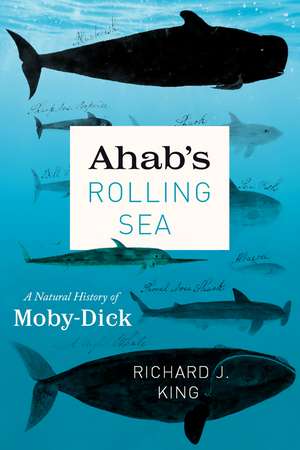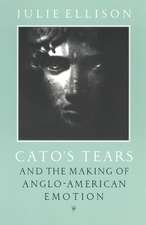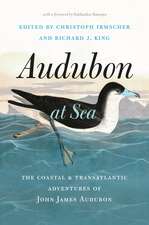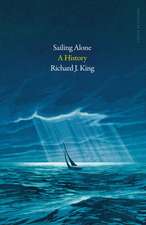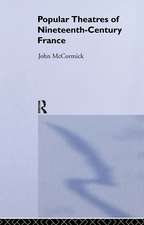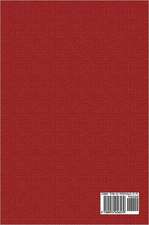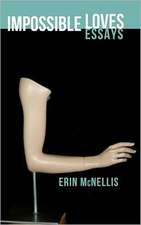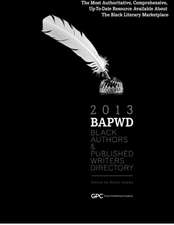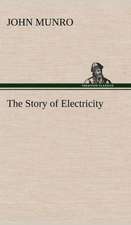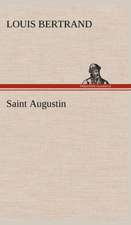Ahab's Rolling Sea: A Natural History of "Moby-Dick"
Autor Richard J. Kingen Limba Engleză Paperback – 4 mar 2021
Although Herman Melville’s Moby-Dick is beloved as one of the most profound and enduring works of American fiction, we rarely consider it a work of nature writing—or even a novel of the sea. Yet Pulitzer Prize–winning author Annie Dillard avers Moby-Dick is the “best book ever written about nature,” and nearly the entirety of the story is set on the waves, with scarcely a whiff of land. In fact, Ishmael’s sea yarn is in conversation with the nature writing of Emerson and Thoreau, and Melville himself did much more than live for a year in a cabin beside a pond. He set sail: to the far remote Pacific Ocean, spending more than three years at sea before writing his masterpiece in 1851.
A revelation for Moby-Dick devotees and neophytes alike, Ahab’s Rolling Sea is a chronological journey through the natural history of Melville’s novel. From white whales to whale intelligence, giant squids, barnacles, albatross, and sharks, Richard J. King examines what Melville knew from his own experiences and the sources available to a reader in the mid-1800s, exploring how and why Melville might have twisted what was known to serve his fiction. King then climbs to the crow’s nest, setting Melville in the context of the American perception of the ocean in 1851—at the very start of the Industrial Revolution and just before the publication of On the Origin of Species. King compares Ahab’s and Ishmael’s worldviews to how we see the ocean today: an expanse still immortal and sublime, but also in crisis. And although the concept of stewardship of the sea would have been entirely foreign, if not absurd, to Melville, King argues that Melville’s narrator Ishmael reveals his own tendencies toward what we would now call environmentalism.
Featuring a coffer of illustrations and an array of interviews with contemporary scientists, fishers, and whale watch operators, Ahab’s Rolling Sea offers new insight not only into a cherished masterwork and its author but also into our evolving relationship with the briny deep—from whale hunters to climate refugees.
A revelation for Moby-Dick devotees and neophytes alike, Ahab’s Rolling Sea is a chronological journey through the natural history of Melville’s novel. From white whales to whale intelligence, giant squids, barnacles, albatross, and sharks, Richard J. King examines what Melville knew from his own experiences and the sources available to a reader in the mid-1800s, exploring how and why Melville might have twisted what was known to serve his fiction. King then climbs to the crow’s nest, setting Melville in the context of the American perception of the ocean in 1851—at the very start of the Industrial Revolution and just before the publication of On the Origin of Species. King compares Ahab’s and Ishmael’s worldviews to how we see the ocean today: an expanse still immortal and sublime, but also in crisis. And although the concept of stewardship of the sea would have been entirely foreign, if not absurd, to Melville, King argues that Melville’s narrator Ishmael reveals his own tendencies toward what we would now call environmentalism.
Featuring a coffer of illustrations and an array of interviews with contemporary scientists, fishers, and whale watch operators, Ahab’s Rolling Sea offers new insight not only into a cherished masterwork and its author but also into our evolving relationship with the briny deep—from whale hunters to climate refugees.
Preț: 157.05 lei
Nou
Puncte Express: 236
Preț estimativ în valută:
30.05€ • 31.20$ • 25.06£
30.05€ • 31.20$ • 25.06£
Carte disponibilă
Livrare economică 03-17 martie
Livrare express 15-21 februarie pentru 32.100 lei
Preluare comenzi: 021 569.72.76
Specificații
ISBN-13: 9780226789873
ISBN-10: 022678987X
Pagini: 448
Ilustrații: 12 color plates, 71 halftones, 1 table
Dimensiuni: 152 x 229 x 30 mm
Greutate: 0.6 kg
Ediția:First Edition
Editura: University of Chicago Press
Colecția University of Chicago Press
ISBN-10: 022678987X
Pagini: 448
Ilustrații: 12 color plates, 71 halftones, 1 table
Dimensiuni: 152 x 229 x 30 mm
Greutate: 0.6 kg
Ediția:First Edition
Editura: University of Chicago Press
Colecția University of Chicago Press
Notă biografică
Richard J. King is visiting associate professor of maritime literature and history at the Sea Education Association in Woods Hole, Massachusetts. For more than twenty years he has been sailing and teaching aboard tall ships in the Atlantic and Pacific Oceans. He writes and illustrates a column on marine animals for Sea History magazine, edits the “Searchable Sea Literature” website, and was the founding series editor of Seafaring America. He is the author of Lobster and The Devil’s Cormorant: A Natural History. For more information, visit http://www.richardjking.info/.
Cuprins
Introduction
1. Herman Melville: Whaleman, Author, Natural Philosopher
2. Numerous Fish Documents
3. Cetology and Evolution
4. White Whales and Natural Theology
5. Whale Migration
6. Wind
7. Gulls, Sea-Ravens, and Albatrosses
8. Small Harmless Fish
9. Phosphorescence
10. Sword-Fish and Lively Grounds
11. Brit and Baleen
12. Giant Squid
13. Sharks
14. Fresh Fare
15. Barnacles and Sea Candies
16. Practical Cetology: Spout, Senses, and the Dissection of Heads
17. Whale and Human Intelligence
18. Ambergris
19. Coral Insects
20. Grandissimus
21. Whale Skeletons and Fossils
22. Does the Whale Diminish?
23. Mother Carey’s Chickens
24. Typhoons and Corpusants
25. Navigation
26. Seals
27. The Feminine Air
28. Noiseless Nautilus
29. Sperm Whale Behavior
30. Sky-Hawk
31. Ishmael: Blue Environmentalist and Climate Refugee
1. Herman Melville: Whaleman, Author, Natural Philosopher
2. Numerous Fish Documents
3. Cetology and Evolution
4. White Whales and Natural Theology
5. Whale Migration
6. Wind
7. Gulls, Sea-Ravens, and Albatrosses
8. Small Harmless Fish
9. Phosphorescence
10. Sword-Fish and Lively Grounds
11. Brit and Baleen
12. Giant Squid
13. Sharks
14. Fresh Fare
15. Barnacles and Sea Candies
16. Practical Cetology: Spout, Senses, and the Dissection of Heads
17. Whale and Human Intelligence
18. Ambergris
19. Coral Insects
20. Grandissimus
21. Whale Skeletons and Fossils
22. Does the Whale Diminish?
23. Mother Carey’s Chickens
24. Typhoons and Corpusants
25. Navigation
26. Seals
27. The Feminine Air
28. Noiseless Nautilus
29. Sperm Whale Behavior
30. Sky-Hawk
31. Ishmael: Blue Environmentalist and Climate Refugee
Acknowledgments
Notes
Selected Bibliography
Figure Credits and Notes
Index
Notes
Selected Bibliography
Figure Credits and Notes
Index
Recenzii
"I’m an easy mark for books like Ahab’s Rolling Sea: A Natural History of ‘Moby-Dick,’ which I’ve read a perhaps unhealthy number of times, in light of Annie Dillard’s opinion that Melville’s baggy masterpiece is the ‘best book ever written about nature.’ Focusing on nineteenth century oceanography, natural history, and, of course, the whalers’ understanding of his prey’s remarkable intelligence, King’s book is a fascinating and rare thing: a vital addition to Melville studies."
“King uses modern sources and historical texts to take a fresh look at Melville’s book—published in the same decade as Charles Darwin’s On the Origin of Species—with the well-defined brief of assessing its natural history content. The result is a lighthearted and incredibly enjoyable read that manages somehow, at the right moments, to be both broad and narrow in scope. It should be required reading for anyone attempting Moby-Dick. . . . No captive of the library, King is an experienced seaman and an open-minded and intrepid guide. A visiting associate professor of maritime literature and history at the Sea Education Association in Woods Hole, Massachusetts, he is willing to pull on his old Sou’wester and sail into the watery part of the world. . . . King writes ably and in scholarly detail about albatrosses, ambergris, baleen, barnacles, seals, sharks, sperm whale behavior and language, swordfish, typhoons, and all sorts of marine and cetological marginalia. . . . [A] talented and clear-eyed . . . writer.”
“A treasure trove. King situates Melville as a person of his time, writing amid a quickening pace of discoveries about the natural world but, pre-On the Origin of Species, inclined to couch them as further disclosures of God’s design.”
“Ahab’s Rolling Sea highlights our destructiveness as it teases fact from fiction in Moby-Dick, the obsessive hunt for a great white whale. . . . Rigorous. . . . Original.”
“King gives us natural history done Melville-style, looking over a ship’s rail, and this ingenious focus neatly weds field science and literary history, yielding a study that is fresh, provocative, and welcome.”
"Ultimately, answering these questions involves poetry more than science. Melville has combined the rational, objective, Darwinian perspective with the emotional, poetic, Emersonian perspective, pushing the reader to see nature as both dangerous and damaged. Here is King’s main point: that Melville’s novel can now be read as an introduction to environmental issues of the twenty-first century."
"Herman Melville’s sprawling masterpiece Moby-Dick is a fictional feat studded with empirical evidence, reveals maritime historian King in this invigorating study. King traces references to ethology, meteorology, marine microbiota and the oceans to Melville’s sailing experience in the Pacific and wranglings with the works of scientists William Scoresby, Louis Agassiz and others. Moby-Dick, King boldly avers, is a 'proto-Darwinian fable'—and its beleaguered narrator, Ishmael, an early environmentalist."
"This examination of Moby-Dick as nature writing could be a sneaky way to get the English majors on your shopping list to read about science."
"King reflects on what we have learned and lost from the oceans since Melville's time. He answers questions many readers surely ponder. . . . Naturally, the book is full of spoilers. Read Moby-Dick, read this, then read Moby-Dick again."
“A rather schematic structure—Ahab’s Rolling Sea could be used as a reference book, a zoological concordance to Moby-Dick—is combined with a genuinely gripping retelling of the tale.”
“Are you a Moby-Dickhead? If so, are you enough of a Moby-Dickhead to have visited the Phallological Museum in Iceland to inspect a sperm whale’s penis? This is one of the many intrepid expeditions undertaken by King in the course of researching Ahab’s Rolling Sea. His book, like Moby-Dick itself, tells you everything you ever wanted to know about whales but were too ashamed to ask. The fact that the sperm whale’s penis, or ‘grandissimus’, is four and a half feet long is just one of its juicier details. . . . It turns out that, with due allowance for the state of knowledge in the 1850s, Melville got a surprising amount right about whales: their size, their bone structure, their mass, even their emotional lives. . . . Anyone who isn’t completely turned off by sea creatures will enjoy surfing the waves of information that roll genially from this book. Ahab’s Rolling Sea also has a big thesis. King argues that Moby-Dick offers a ‘proto-Darwinian decentring of the human and the elevation of the whale.’ . . . It would be hard to fault either the motives or the facts underlying King’s ecological zeal.”
"King, a visiting associate professor of maritime literature and history (what a fascinating title this is!), runs after the Leviathan of literary semantics in the most imaginative way: testing what Melville and people of his era knew about their natural environment, maritime ecosystems, birds, cetaceans, and whales before he published Moby-Dick in 1851. . . . King does his best not to be another Ahab seeing his 'White Whale' escaping. And he actually makes it: from the detailed research of the marine fauna to the possible influences of Emerson, Thoreau, Darwin, Bowditch on Melville. This is the retelling of Moby-Dick from an imaginative point of view: from the Pequod towards the cosmos surrounding us in the era of new environmentalism."
“An exquisitely detailed and gorgeously written book that reminds us of the wonder of Melville's novel and of the natural world in which it takes place. Fascinating accounts and descriptions of whales, swordfish, sharks, giant squid, ambergris, etc., and of the sea itself: then and now. And informed by a writer who has spent years at sea, is now a professor of maritime literature and history at the Sea Education Association in Woods Hole, Massachusetts. King gives an original, loving rereading of Melville's novel. He is himself a master storyteller whose handsomely illustrated book is deeply informed and full of delightful surprises."
"Depending on who you are, reading Moby-Dick, first published in 1851, could be a sleep-inducing slog or a stellar sea yarn of man versus whale. But the book has (sea) legs, and since its release has proved to be one of the most enduring books of American fiction. Its literary merits have been discussed and debated, but King, a professor of maritime literature and history, examines the book as a work of nature writing . . . He does extensive reporting, delving into everything from the rigging of whaleships to the diet of sperm whales."
"A unique take on Melville...The book is unquestionably well researched: King blends library research with personal experience and draws on interviews with contemporary 'oceanic' professionals, including maritime-historian colleagues, ocean scientists, and sailors. He also provides scores of photographs and other pertinent illustrations. Anyone interested in Melville will find this rich and insightful study fascinating—but those readers curious enough to see Moby-Dick as an oceanographic encyclopedia will benefit most."
“King dissects the language and information available to Melville, including books found within Melville’s library, and identifies how edited versions of what was understood at the time were twisted to serve the story. The reader comes to appreciate Melville’s thorough natural history research, especially in light of the fact that Moby-Dick was written at a time when it was not yet decided whether whales were fish or mammals, and when scientific knowledge was shoehorned into a religious worldview...I thoroughly enjoyed King’s well-researched analysis of the classic tale which ‘offers a benchmark for how Americans understood the ocean in the mid-nineteenth century’ and in doing so, compares and contrasts this with our perceptions of the ocean today.”
"Employing Melville’s maritime setting as a base camp for this ambitious excursion into our present-day relationship with the ocean and its denizens, Ahab’s Rolling Sea is that rarest of scholarly books: one that delights as it informs. . . . Key to the book’s success is King’s skill as a writer. He weaves impressive research—much of it archival—with his own insightful and enthusiastic prose. Topping it off, the book is filled with a rich assemblage of illustrations, maps, and photographs. King writes, 'Like the industry of whaling itself, Melville reveled in the chance to show how the ugly, dirty deep revealed both man’s hypocrisies and nature’s treasures.' The same can be said of Ahab’s Rolling Sea, a book that, like Melville’s novel and like the wonders of the ocean, manages to thrill, to educate, and to inspire."
“Tired of binge-watching those mind-numbing programs and movies? During this pandemic, we’ve been warned to exercise regularly and that includes our brain. With extra time for nonessential activities, it’s an opportunity to read a few good books—especially venturing into unfamiliar territory. . . . This book is excellent. Even if you haven’t read Melville’s classic of sea literature, you will be amazed at his command of the environmental world that is its setting. . . . What King says will entertain, inform, amuse and sadden you."
"Simply breathtaking, in that it takes one’s breath away and refills the lungs with a gust of salty sea breeze...Ahab’s Rolling Sea collects accounts from literary criticism, theory, climate activism, and natural history for a deep dive into one of the most popular maritime novels around—Herman Melville’s Moby-Dick...The relatability and readability of Ahab’s Rolling Sea, at a time when the sea has much receded from daily life, is a testament to King’s pedagogical, sailorly, and descriptive mastery. King invites us to stand aloft with him and Ishmael, and look out toward the wonderful, ever-rolling sea. Maybe, if we look close enough, we will even get to see a whale.”
"King’s book ballasts one’s appreciation for Melville’s vision with rich freights of lore, observation, scientific data, and history of ideas. It is an admirable companion to the novel and the mind bold enough to bring it into the world."
"The chance that someone could write something new and fresh about such a book seems as unlikely as a big haul from our over-fished oceans, yet King achieves this. . . He has produced a powerful ecocritical analysis of Moby-Dick, reinforcing the novel as essential reading for all who sail, paddle, wander or simply ponder on the sea."
"This is an essential read. . ."
“Richard J King’s Ahab’s Rolling Sea: A Natural History of Moby-Dick is both a brilliant reading of the novel and an elegy for the wonders of the sea that we humans are destroying."
"Ahab’s Rolling Sea is a refreshing and substantive contribution to the ex-isting mountain of Melville research. It avoids convoluted literary analysis and outrageous symbolic claims, instead fo-cusing the reader’s attention on the sea, where Melville intended it to be. Not the least of its many pleasures is the irresist-ible urge to once again plunge into that classic book that so memorably begins, 'Call me Ishmael.'"
“Anyone who loves Moby-Dick should read this book.”
“It took me decades to appreciate that Melville’s messy, uncontainable, surging Moby-Dick is perhaps the greatest book ever written about the sea, and about the human relationship with the living world, and perhaps the only book sufficiently un-jaded by mercantilism and modernity to be worthy of the actual ocean itself in all its raw, uncontrollable, surging majesty. But if you don’t want to wait decades for Melville’s magnificence to be revealed, you can cheat and read King’s book. Ahab’s Rolling Sea is a marvelous guide to the magic and mystery that was Melville’s gift to us, for King reveals the deep, deep backstory of the making of Moby-Dick, the vast pots of experience and information that Melville simmered down, and even the missing ingredients of his age, that made Moby-Dick the richest bouillabaisse in all of literature. Oh, and about Melville’s missing ingredients—they’re here, in King’s terrific book.”
“Ahab’s Rolling Sea is a wide-ranging, highly personal, richly eclectic, and extremely well-researched book whose style and humor, combined with its rigor, suggest the potential for popularity even beyond the fascinations of this self-confessed whalehead. Who could not warm to a chapter titled ‘Gulls, Sea-Ravens, and Albatrosses’ or ‘Sword-Fish and Lively Grounds,’ or be intrigued by ‘Phosphorescence’? There’s a Melvillean romance here, and it sits especially well with King’s love and empathy for human as well as natural history. A contemporary, witty, almost postmodern field guide.”
“King decisively settles any lingering questions about Moby-Dick, nineteenth-century whales and whaling, and all lore and literature of the sea. More than establishing a factual basis for Ishmael’s fiction-making, King writes passionately on climate change, economic pressures on sea creatures, and the future Melville confronts in his marvelous encounter with the ‘wonder-world’ of whaling. King’s deep knowledge grounds lively storytelling, keen observations drawn from years of sailing, and an eye for details that will make Melville’s book come alive. But even if you haven’t read Moby-Dick, you will revel in this storehouse of fascinating tales and arcana, from Ambergris to Zeuglodon. A treasure for library, classroom, or bedside table.”
“This is a superb work of popular scholarship that rivals the best books of maritime nonfiction currently in print. For any teacher, reader, or aficionado of Melville’s magnum opus the present work will be a joy to read; for anyone curious about the current state of the marine environment, this book will be eye-opening.”
"In King’s masterful study, which really is a natural history, almost as loaded with nautical lore and whale music as Melville’s own work of fiction, he invites us to consider what drew Ahab first to the sea, then to Moby, and finally to his own death, and what draws some of us, to him as a literary character."
